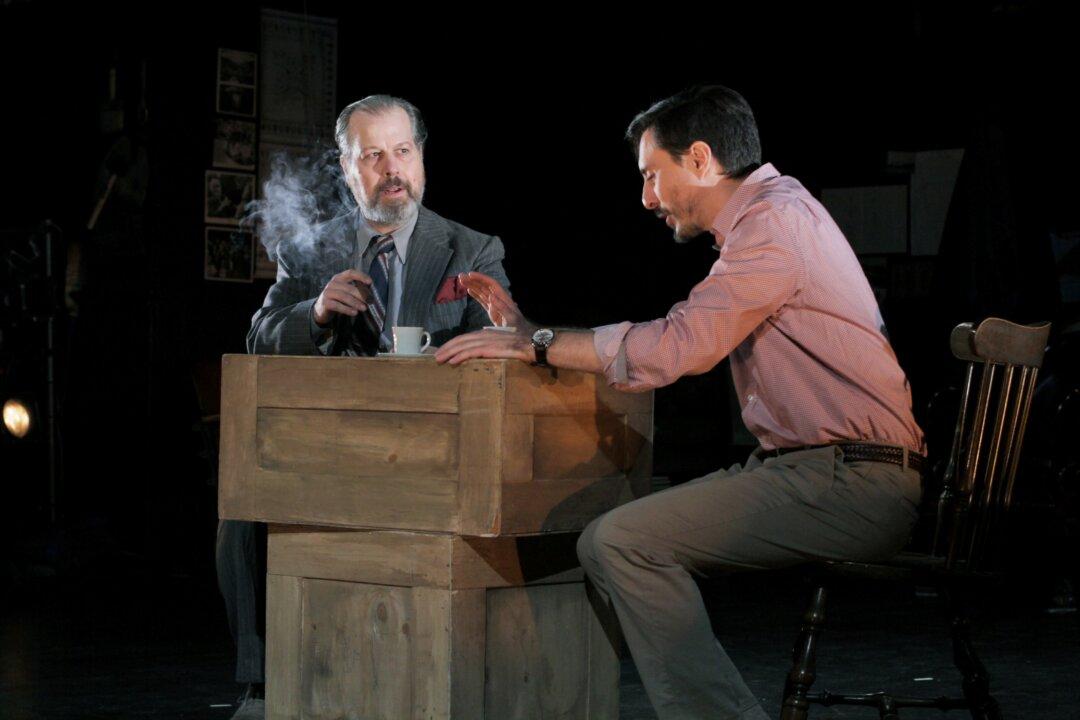NEW YORK—Video producer Frank Beacham has based his play “Maverick” on experiences he had with the late Orson Welles in the latter days of the famed actor-director’s life.
Beacham (played by Stephen Pilkington) had always admired Welles (George Demas), so when he had an opportunity to work with him, he jumped at the chance. Beacham had produced such programs as the vapid “Lifestyles of the Rich and Famous” but wanted to be affiliated with “high art.”





